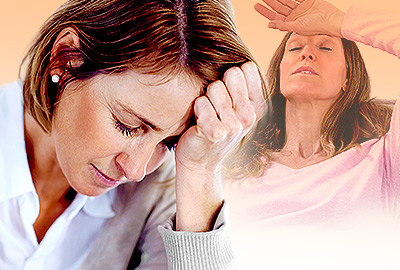Fatigue is one of the most common symptoms of menopause, affecting around 80% of women daily. Fatigue is defined as the constant feeling of weakness, tiredness, and decreased energy levels. Additional characteristics of fatigue include apathy, decreased attention span, and irritability. Fatigue in menopausal women is caused by hormonal fluctuations, mainly a drop in estrogen levels. Aside from hormonal causes of fatigue, there are several lifestyle roots as well. These include things like stress, overwork, poor diet, and insufficient exercise or lack of sleep. Psychological triggers of fatigue include anxiety, insomnia, depression, and grief. These triggers are more difficult to treat.
Exercise to Boost Energy
Although it may seem counterproductive and difficult to exercise when feeling fatigued, it can actually help in the long run. Exercise does not cause fatigue in menopausal women; rather, it has been shown to boost energy levels. Exercise has been shown to help alleviate numerous menopausal symptoms, like weight gain, hot flashes, and headaches.
A recent study conducted by the University of Georgia examined how exercise affects people suffering from constant fatigue. The results of the study showed that the volunteers who exercised at moderate intensity three times a week experienced a 20% increase in energy levels by the end of the six week study, compared to the control group, who did not exercise at all during the six weeks. Consider low-intensity workouts like biking, walking, yoga, and swimming.
Things to Avoid
It is important to be aware of things to avoid that cause fatigue.
Excessive alcohol consumption. One or two glasses of wine at night are fine, but drinking excessively actually disrupts sleep and severely dehydrates the body.
Skipping meals. Skipping meals causes a drop in blood sugar and directly affects energy levels.
Eating heavy meals. Eating big meals three or fewer times a day prompts fatigue. It is recommended to eat small meals, along with snacks every three to four hours.
Stress. Try to manage stress with yoga, reading, or meditating, because it is one of the leading causes of fatigue.
Insufficient sleep. This may seem obvious, but many people do not get enough sleep every night. The recommended amount of sleep is around eight hours per night.
Maintaining a healthy lifestyle and staying fit are crucial to a woman's well-being and quality of life. It is always important to maintain a healthy and active lifestyle, no matter your age. However, when you are approaching menopause, it becomes especially crucial to do in order to keep fatigue and other troublesome menopausal symptoms away. Getting regular exercise is an excellent way to prevent fatigue, reduce stress, and boost energy levels. Walking, yoga, biking, and swimming are low-intensity workouts that are highly effective.
Sources
- Better Health Channel. (2011). Fatigue Fighting Tips. Retrieved July 22, 2014, from http://www.betterhealth.vic.gov.aubhcv2/bhcarticles.nsf/pages/Fatigue_fighting_tips
- National Health Service UK. (2013). Self-help tips to fight fatigue. Retrieved July 22, 2014, from http://www.nhs.uk/Livewell/ tiredness-and-fatigue/Pages/self-help-energy-tips.aspx
- National Institutes of Health. (2014). Fatigue. Retrieved July 22, 2014, from http://www.nlm.nih.gov/medlineplus/fatigue.html
- Puetz, T.W. , Flowers, S.S. & O'Connor, P.J. (2008). A randomized controlled trial of the effect of aerobic exercise training on feelings of energy and fatigue in sedentary young adults with persistent fatigue. Psychotherapy and psychosomatics, 77(3), 167-174. doi: 10.1159/000116610




